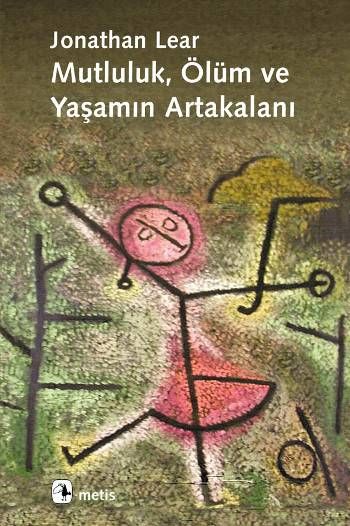
Mutluluk , Ölüm ve Yaşamın Artakalanı
Philosopher and psychoanalyst Jonathan Lear examines the question that combines two interests: “What difference does psychoanalysis make to our understanding of human existence, of ethical life?” Can we use psychoanalysis to develop a more humane ethics, taking into account the fact that people live with unconscious motivations and fantasies? Is a seamless synthesis possible between Aristotle's ethics, which highlights the issue of how a "good character" can be formed through virtues that have been practiced over the years, and Freudian psychoanalysis, which discovered that some activities of the mind occur aimlessly?
According to Lear, such an attempt at synthesis is doomed to failure. Because, says Lear, they are pursuing a principle that will put everything in life in its place, "which is happiness in Aristotle and death in Freud" and a purposefulness that will make sense of every detail of life, and that both of these attempts are already serious in themselves. There are problems. Therefore, psychoanalysis's contribution to ethics will be to enable us to benefit from "breaks" that can be called lucky, that is, "possibilities that open new possibilities".
Showing how concepts, once established, irreversibly transform our lives and that we undoubtedly need them to influence collective life in the direction we want; but on the other hand, it is an mind-opening book that calls us to respect and pay attention to the aspects of life that are "left over" from those concepts, "that is, the aspects that can never be fully fit into those concepts, that lack purpose, principle, and narrative continuity."
Number of Pages: 152
Year of Printing: 2006
Language: Turkish
Publisher: Metis Publishing
First Print Year: 2006
Number of Pages: 152
Language Turkish
| Publisher | : | Metis Publishing |
| Number of pages | : | 152 |
| ISBN | : | 9789753425704 |
| The heart | : | Turkish |


